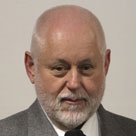
Paul Schonenberg
Chairman of AmCham Luxembourg
Economy / Luxembourg
“Luxembourg’s position in the center of Europe is a clear advantage”
Having opened up 22 years ago, AmCham Luxembourg is now a “melting pot” of companies that have found success in the Grand Duchy. Paul Michael Schonenberg, Chairman of AmCham Luxembourg, tells us about potential synergies he has spotted in IT and space mining that work well with the nation’s strong set of competitive advantages.
What do you view as the key competitive advantages Luxembourg holds over other European business and financial hubs?
Luxembourg is a country that offers a broad range of advantages. First of all, it is an attractive and extraordinarily safe country. Secondly, Luxembourg has comparatively lower tax rates than many other locations, which also makes it attractive from a financial standpoint. In addition to that, Luxembourg has world-class infrastructure with one of the best fiber optic networks in Europe. Luxembourg’s position in the center of Europe is a clear advantage for the country. In a few hours’ drive you can be in Paris, Brussels or Amsterdam. There is excellent airport infrastructure, one stop away from bigger European hubs. About 50 percent of the population of Luxembourg is foreign, which makes the country an interesting international mix, with a lot of people speaking different languages, and bringing their culture here. Of course Luxembourg remains a small country, which means we don’t have a huge domestic market; but because it is such an open country, Luxembourg makes an ideal hub to service other locations.
What are the points that remain for improvement in Luxembourg?
As the OECD points out in their latest executive report, Luxembourg’s economy is doing great, with one of the highest growth rates in Europe; however the report points out to several areas where impediments need to be removed. First of all, OECD points at a mismatch between the skills offered by people looking for work and the required skills companies are looking for. The OECD report suggests that more effort needs to be put into skilling and reskilling to make sure that the people looking for work have the right skills in order to feed the needs of companies looking for employees. Entrepreneurship is another area pointed at in the OECD report. The Government needs to do more to encourage entrepreneurship and remove structural barriers that impede the establishment of companies in Luxembourg. Lastly, there’s also a large foreign population in Luxembourg, and even though there are no problems at the moment, the Government must ensure social cohesion prevails going forward. More effort is needed to integrating foreigners in the future.
What other emerging sectors do you believe present the best opportunities for creating synergies with US companies?
The communications and IT sector presents a good potential. The Government is presently in discussion with Google to establish a data center here, and has done a lot to encourage the development of the ICT industry. I believe there are only between five and seven secure data centers on the planet, and three of them are in Luxembourg. We have a stunningly impressive data center environment in Luxembourg that is totally outsized compared to the size of the country. From a climate and environment perspective Luxembourg is safe, it is not going to be under water and it is not under seismic stress; so from that perspective it’s also a good place to host a data center location. Furthermore, the Government is doing its best to maximize Luxembourg’s location in the heart of Europe and propel the country as a logistics sub-location in Europe. And lastly, Luxembourg is the first country on the planet to do space mining.
Can you give us an overview of your role and contribution towards helping US firms?
When AmCham Luxembourg was created 22 years ago, there were about 122 American companies in the country. Most EU countries already had an American Chamber of Commerce, but in Luxembourg we had none. Today we have four main objectives: to provide networking in English, information about how the country works, offer problem solving and suggest better practices, and establish gentle communication and lobbying with the government on behalf of our members. In order to do these things we created a committee structure that enabled us to deal with specific areas, and now we have 19 committees.
What does your membership look like today?
In order to increase our weight with the Government, we also had to incorporate more members. As a consequence, we now are the biggest private chamber of commerce in Luxembourg. The American community is large and influential; however, it is not the biggest community. At AmCham Luxembourg we have 30% American companies, 20% purely Luxembourgish companies and 50% from the rest of the planet –we are a melting pot. Our voice is diverse and strong; when we go to the Government, we go on behalf of the international community, not just on behalf of Americans.
